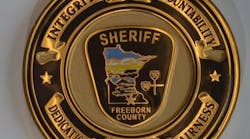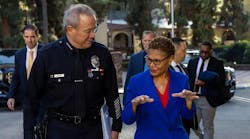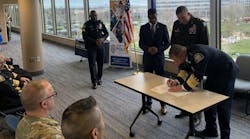Editor’s Note: This isn’t necessarily easy to read. Because of the topic and the depth of thoughts expressed, it may take you a time or two before you understand a sentence or the connection between several. Remember too, that you don’t need to agree with every thought imparted to appreciate the greater overall value of the whole.
- - - - - - - - - -
The social networks we form and maintain are critically important for our emotional and physical well-being. Like most primates, humans are a predominantly social species, interested in and needing companionship with others to feel whole. Most of us will seek and create long-term pair-bonds to satisfy our need for romantic coupling and the benefits it brings, and even those who ultimately forego marriage or its equivalent usually have at least some romantic history. We also look for community with others, invest in friendships, seek out people with shared interests, and tune in to those around us to see with whom we naturally “connect.”
Our relationship networks – which include our romantic partners, families, self-selected friendships of varying depth, and even some of those people we come to associate with circumstantially – ideally provide the crucial social support we crave and need. These networks play another deeply influential role, however, and one you might not fully appreciate or recognize; the social networks we choose shape who we are, inform the way we experience and react to the world around us, and guide us in defining our own identity. In fact, who we are (and see ourselves) at 30, 40, 50, or beyond is largely due to a lifetime combination of the social choices made, the circumstances imposed on us, and what we learn from the accumulated experience up to that point in life.
This is why, when writing, speaking, and teaching about the emotional well-being of police officers and their families, we so strongly stress the importance of not just having and nurturing friendships, but of choosing the right type of friendships and discerning between the healthy and unhealthy people in our lives. Just as surrounding ourselves with emotionally healthy, stable, and supportive friends and family can enhance our own psychological and physical well-being, choosing the wrong crowd can be equally detrimental.
- - - - - - - - - -
This article is about choosing friends wisely. Just as your parents (hopefully) warned you as a kid, you will be known by the company you keep (especially true in law enforcement) and judgments of your character are influenced by the character of those with whom you surround yourself. Moreover, the company you keep influences you, and you them, hopefully for the better. We’ve long tried hard to live by Proverbs 27:17 (and you don’t need to be particularly spiritual to appreciate the wisdom) that says, “As iron sharpens iron, so one person sharpens another.” Seeking the companionship and counsel of those living life well, excelling professionally, and of admirable character has greatly helped us personally, professionally, and as writers, teachers, and volunteers.
To some extent we are talking directly to young officers just beginning their law enforcement careers. These young men and women, mostly in their 20s and early 30s, are the future of law enforcement and are poised to experience and preside over sweeping changes in the profession they’ve chosen and the society they police. They need to be on top of their game and of uncommon character. As they take their places in the profession the choices they make, and how they influence them, will shape their careers, how they are perceived within the station walls and out in public, and largely determine their future success. The friendships they make and maintain are of utmost importance among those choices.
And yet, we are also addressing older officers, as well. Whether at the midway point or entering the twilight years of a career, choices still matter. Do you recommit to the career you still love, or follow the path of cynicism? Do you align with the still dedicated, mentor the younger generation, or join the disheartened and burned out?
Whether you are new to the game or a seasoned veteran, the friends you choose – and more importantly how those friendships influence you – matter a great deal. Surrounding yourself with those who will sharpen you, both at work and away, strengthens character, pushes boundaries, and will make you a better cop. To that end, we offer this advice on choosing friends wisely:
Choose positive influences
We all know the cynical, burned out, world-weary cops among us – the “Eeyores” in blue – and, if we’ve been around awhile, probably even have some good friends in that camp. There is nothing wrong in staying friends with them – we’d never suggest kicking someone to the curb, especially since most of us will probably spend some time as an “Eeyore” now and again – but watch where you align yourself. We all know veteran officers with decades on the job who come to work each day and cheerfully give it their all. Being a cop is still fun after all these years and, like a quality wine, they age well.
Not only should you watch and learn from these officers, but actively try to enter their sphere. Understand what makes them tick, how they stay focused, and their philosophy of policing. Positivity is infectious and wards off the equally infectious negativity that seems to permeate so many agencies.
Don’t get sucked into the “Eeyores” world too deeply
We’re not suggesting dropping old friends, who may be burned out, checked out, or angry at all – realistically, we’ve all been there or someday will be. We are saying to be cautious, guard against being sucked into their world too deeply, and focusing on your own experience and reality. Stay a good friend, listen, empathize, and encourage but avoid stepping into the whirlpool of despair.
Stay, or get, out of the “Police Bubble”
The temptation to surround yourself socially only with others who live and work in the law enforcement milieu is strong. Policing is a highly visible, if little understood, profession to most who don’t live it every day. Oh, they think they understand what’s going on. They’ll offer a lot of opinions about the way things ought to be. And most people will have no idea how exhausting they can be. It’s just easier to choose friendship with only those who get it.
But then far too often old friends fall away, who you were before fades from memory, now possibilities are ignored, and your world becomes increasingly insular. Even extended family is pushed away.
Guard against this temptation. Emotionally healthy officers learn to maintain and make friendships away from the job, for their benefit and that of their “civilian” friends and family.
Seek out people who challenge you
The tendency for most of us is to seek companionship with the like-minded. We flock with those with whom we most closely identity and make us feel comfortable. For cops, even when they wander off the reservation friendship-wise, the tendency is to seek out those who share similar politics, worldview, interests, and experience. This is actually natural among most humans, and especially as we get older; it’s simply easier to form relationships on common ground.
But most of us weren’t always so reticent about forming friendships with people different from us. Adolescence and young adulthood is often a time of expanding social circles to facilitate self-discovery, learn about diverse points-of-view and challenge our own, and the adventure of making new friends and experiences. Then, as we settle into career, parenthood, and other “adult” pursuits, our social circles sharply contract. This is normal and understandable, and even within most police departments officers tend to bond only with those most similar to them. The problem is we stop challenging ourselves to consider and learn from alternative viewpoints – arguably a necessity in any serious profession including law enforcement – and wall ourselves off from that which makes us uncomfortable. Likewise, our perspectives are lost to those who could benefit from them. A lot of us stop exploring the unknown, settle into routines that will last years or even a lifetime and limit opportunities to adventure, and even threaten our mental capacities as we “lose what we don’t use”.
Actively pursue those who challenge you (respectfully) and reap the benefits of learning from diverse viewpoints.
- - - - - - - - - -
Making and maintaining friendships is an important part of staying emotionally grounded and healthy. It’s also a challenge. Make meeting the challenge a goal as you move through your career.


